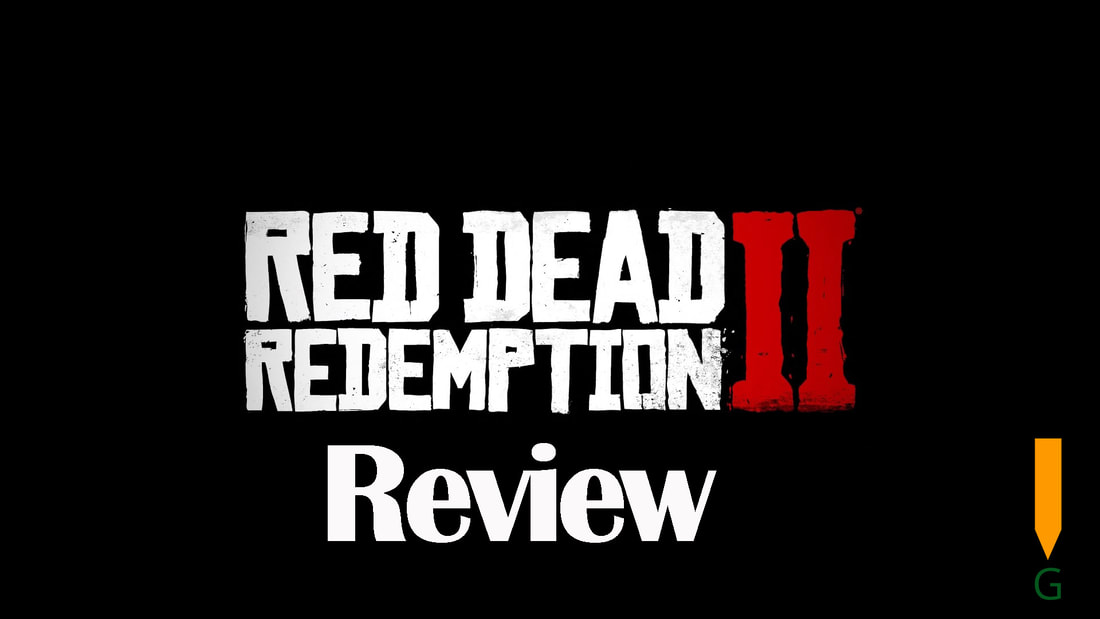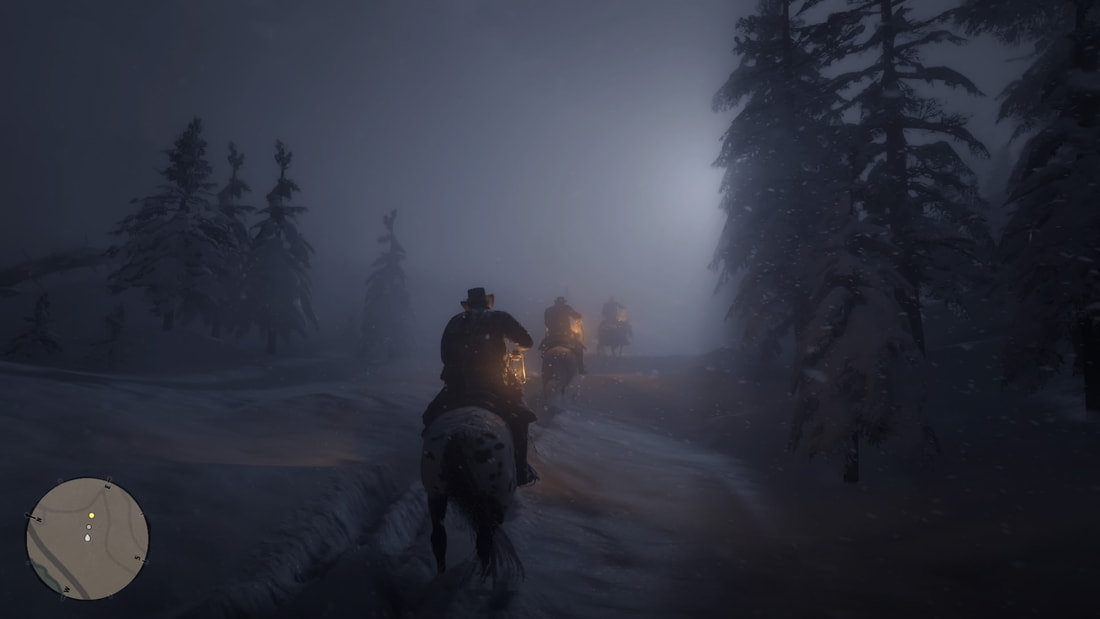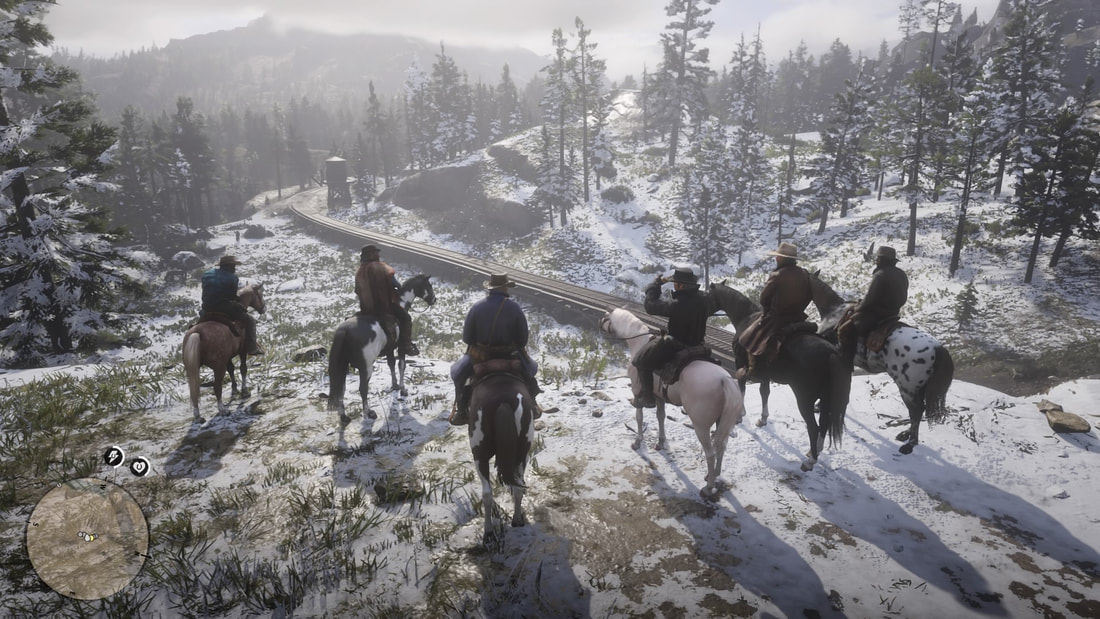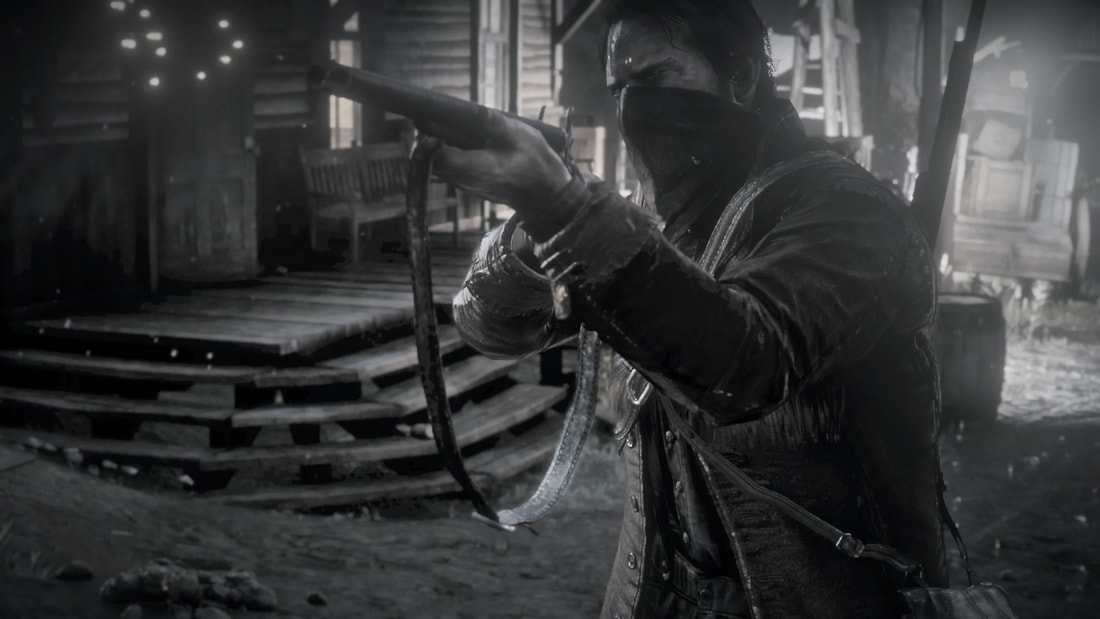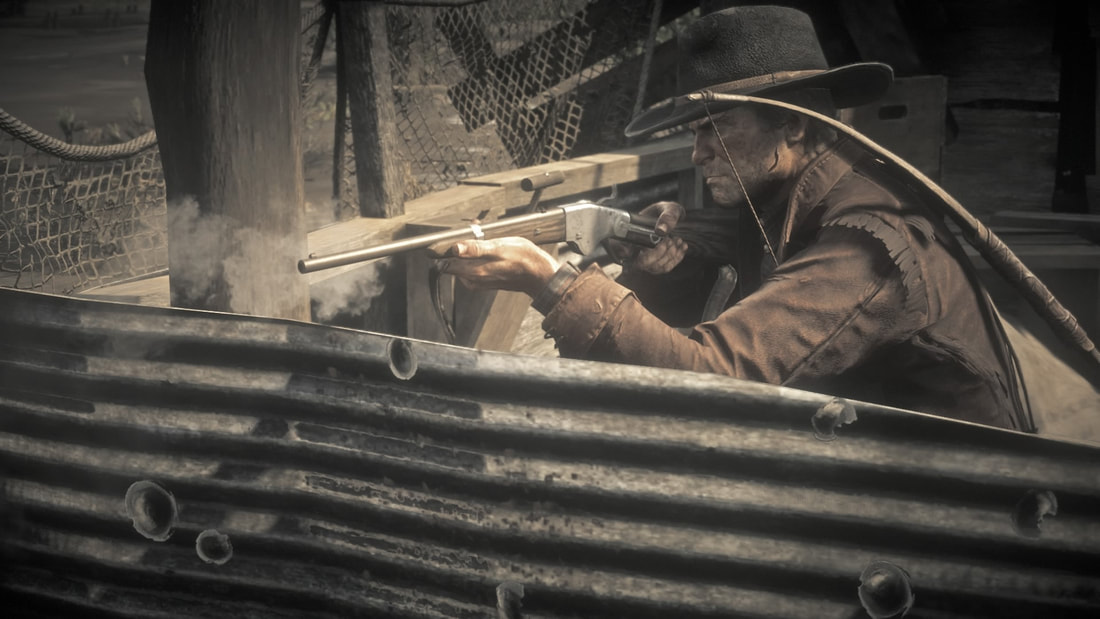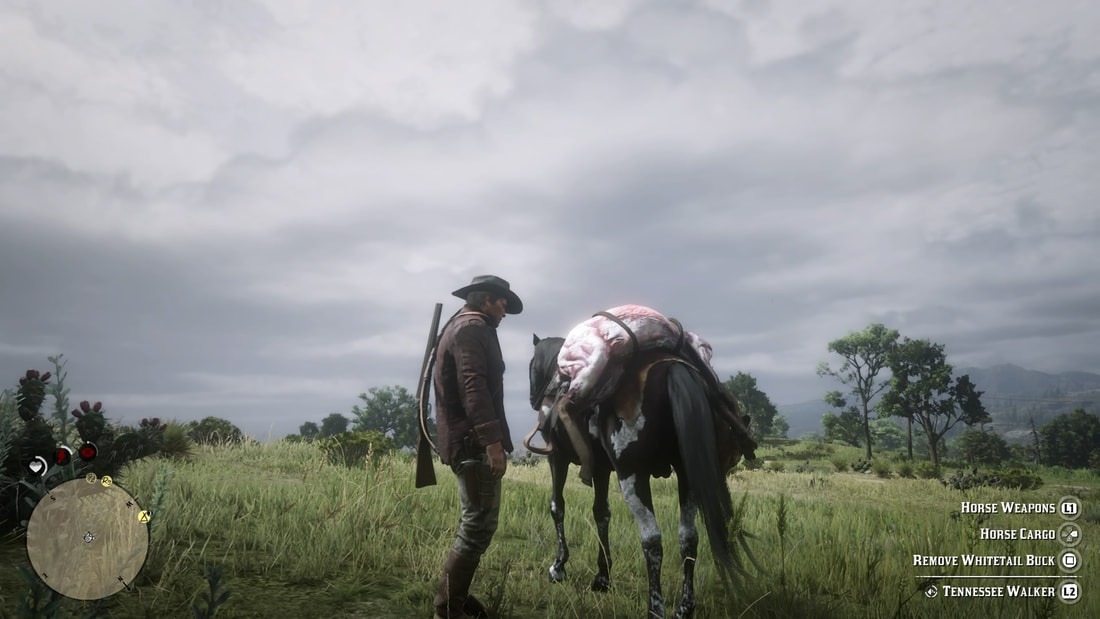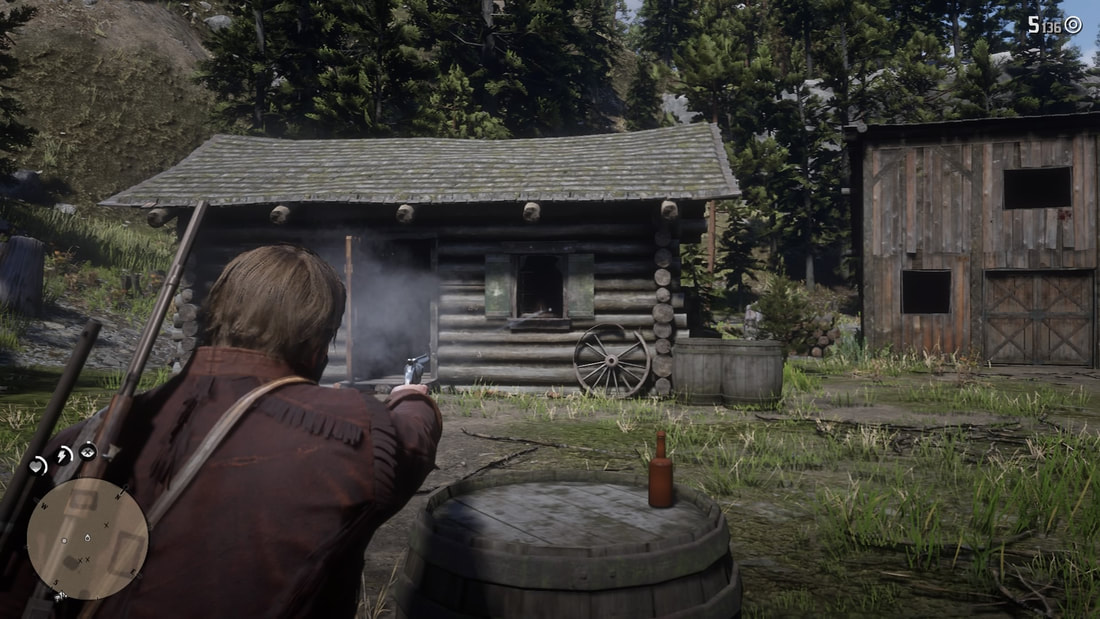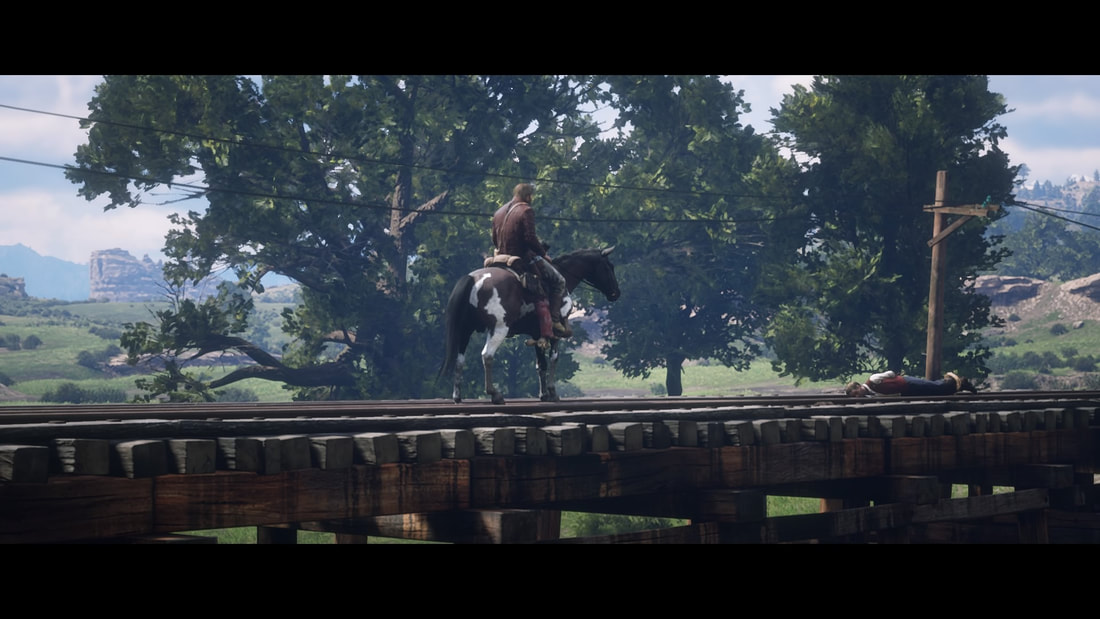Myggaming
Menu
|
Red Dead Redemption 2 stands as one of the greatest tragedies many will have ever played. That doesn't mean it doesn't have it's fair share of problems.
No game comes out in a bubble, and no other company feels the heat of the public’s scorn and praise quite like Rockstar Games. As a game-making conglomerate more widespread than democracy at this point, the world shakes with their steps. No matter what you may think, Rockstar Games has a plan that executes on their time, in their way, and usually brings the house down.
Inside the allegorical American frontier of Red Dead Redemption 2, you’ll hear plenty of plans. The Van Der Linde Gang mull out loud about their next move often, always reticent for opportunity to unfold their goals a little further. Those goals seem fairly simple on paper: get money and get out of dodge. For the dozen-or-so members, there is only that goal to keep them warm alongside their loyalty for one another, which burns with a brightness that makes everyone feel unique amongst so many cutthroats. As no game can come out in that bubble and no gang can survive alone, Red Dead Redemption 2 finds its largest split at its summation. In certain aspects, this is a peerless experience that will undoubtedly transcend this generation into all others to follow. In others, it’s a step over the mountain’s peak where there is genuine danger that a thousand cuts can bring this experience back down from the clouds.
The Van Der Linde gang is on the run. Something fell through in their last big job and Pinkertons are chasing them up into a snowy pass. The gang at large already has cuts and bruises coming into this opening, and they’re all tasked with moving forward no matter what. The only way out is in and all that.
What unfolds eventually takes us to Red Dead Redemption, but it’s what happens in between that mimics an operatic, epic poem that rises in its own time. You take Arthur Morgan and the gang from locale to locale, leaving behind more and more possibilities in order to take their collective dream by the horns. Arthur is one of the largest proponents to that change as Dutch Van Der Linde’s main gun and right-hand man. With other events that happen before and during the game, you can practically hear the chess pieces scrape across the board. Every move of an unintentional game brings these two key figures together and shows clearly how their relationship complicates with the world around them. To me, Dutch and Arthur are paramount as their full relationship matures somewhere around halfway through the game. There’s always a plan and always hope in Dutch’s mind, which doesn’t always pan out as the desperation of the mouths and eyes looking to him for guidance begin to noticeably weigh him down. Arthur, meanwhile, is one of the gang members largely idolizing that hope and longing for the freedom that’s gating off around them in the form of government and society. Both are uncomfortable in big cities and share a love of simplicity, but the world just doesn’t seem to care about what they want anymore.
That is the brilliance of Red Dead Redemption 2’s story - a sweet spot of similar brothers barking back at the world together, yet looking for their own ways to change. There is simply no speaking of certain moments of the game for they deliver so many visual and aural delights that encapsulating them is an essay in and of itself. There are mountains of beauty and heartbreak unseen in video games before. For all the times Rockstar Games hasn’t given the story much love, the first 50-60 hours of the story here is simply unmissable.
My issues come with the last 10-20 hours that treat one event like an egregiously small spark. In a small sense, it’s unnerving that some air isn’t blown into the pace around this time. There are a lot of aspects, small and large, that I’d like to have seen refined or restructured that I can’t talk about for spoiler reasons. To that end, the last sizable chunk of Red Dead Redemption 2's story feels uneven and doesn’t come close to the quality of execution the earlier sections. Games in general often find their largest split between gameplay and story, the latter often sacrificed in service to the former. Red Dead Redemption 2 trends the opposite way with entire gameplay systems and loops severed or otherwise manipulated in service to the story Rockstar wants to tell. This has undoubtedly served as a pressure point for discussion and ridicule as a decision that fully changes how the game fundamentally works. A running example is the constant desire, both spoken and implied, for money. It’s central to Dutch’s plan as their large cache is currently surrounded by Pinkertons near their old hideout. Everyone’s initial job is simply to gather money or information that could lead to money. The ends for the money and means of obtaining are hardly debatable and often the lowest denominator, but as long as money is brought back, their elusive goal seems that much closer.
One of the loops baked in early involves bringing extra money back to the camp into a community pot. This serves as a pool for Arthur to update lodgings, bring in more supplies, and generally keep spirits as high as possible. At first, it seems oddly shallow as a mechanic that levels off quickly, but the intention comes clear after a story beat leaves you without those resources. You’re meant to feel alongside the steady decline of the opportunities afforded to the gang by money, their hope and your own seeping away at the same spouting pace.
By and large, the intentional hardships the gameplay suffers for the main story range from engrossing to unoffensive. Looking outside of the story and those decisions that directly affect it is where unnecessary pain awaits like a bear trap laying just off the dirt road. Not in the modern generation have you likely played a game so open while simultaneously feeling so linear. Inside of missions, any deviation puts you at full risk for a fail state. That can take the form of your uncontrollable partner dying, taking your horse on the incorrect side of a rock, rowing a boat a little too slowly, fiddling with your inventory too much and being left behind, doing an “unhonorable” deed, doing an “honorable” deed, accidentally wrecking your horse and killing a passenger, and more. Missions, as a result of these choking restrictions, feel focused on the action ahead while simultaneously roping you around the ankles. And no, this doesn’t directly affect the story just because you’re hooked up like Malcolm McDowell in Clockwork Orange. Rockstar already had attention, already had every eye in the room; this is overkill in the worst way. This doesn’t even enter into the realism gripes that have made rounds. It’s not realistic that Arthur can absorb bullets like Magneto while Lenny or Sadie can go limp in a heartbeat. Each of these gripes is just as game-y a decision as hair growing or meat selling except that these actively hurts the experience. The interesting fix I have imagined many times for this is simple: make Red Dead Redemption 2 not an open-world game. At least, at first.
The story is already set-up for this concept due to the fact that everyone in the country is after Dutch and crew at one point or another. So, why not blank out areas and create hostile borders that effectively cut that part of the world off until after the story ends? The gang moves to multiple locales for this exact reason, so why not go all the way? Create a Phantom Pain-style mission area with up-front dos and don’ts that can happen organically as you ride, baking the restrictions Rockstar clearly wants into the framework and story. You can see that intent even now as some cities go on lockdown after some larger jobs. Rockster had this concept in their working notes somewhere on a smaller scale.
Were it the case that this change was reality, I could make the case for brilliance on Rockstar’s behalf and the gameplay wouldn’t feel so nerve-wracking in the exact opposite way that was needed. Reality, as we’ll find, does have some hooks slightly too deep into this experience to allow for those types of ideas to flourish. Walking or riding into town in free roam in Red Dead Redemption 2 is not only dangerous but lacks the heavy context that the missions strive for. Running your horse through the streets is the quickest way to get a wanted level, apology be damned. Killing anyone is the same, which seems far more obvious as a no-no much as the original Redemption showcased. But here, in the land of no context, it doesn’t matter if you’re provoked and fighting for your life or robbing a store. No matter what, if there’s a witness, you will be hounded by law and have to pay with jail time or a bounty. If you don’t, anywhere from a third to about a fifth of the map becomes hostile to you while those cities can indeed lock you out. This will bring lawmen, posses, and rival gangs after you in admittedly cool roadway ambushes that could satiate some bloodlust if that’s what you’re looking for. Because of their organic approaches to you as their prey, they can come at very inopportune times when you’re helping a stranger, or even when locked into a mission (I believe this was a glitch, to be fair). All stranger missions, bounties, and services are locked until your matters in that county are resolved. The first few times, you may think these problems avoidable, but I assure you that they aren’t. You will feel this pain a dozen times or more for little reason besides filler.
Hunting is another casualty of Red Dead Redemption 2’s realistic approach. On the surface, this is no deeper a system than the original game with Dead Eye being a constant time saver. Charles takes you out early to hunt for food and you quickly see the systems are overcooked. Ammunition size, pelt quality, your smell, the wind, your shot location, and the size of the beast are all factors in determining your ultimate prize. Most everything will give you meat of some quality, but putting multiple bullets into any pelt drags down the quality to poor, ending your hopes of a high-priced return.
The worst head of Rockstar’s seeming addiction to realism is the fact that you can only carry one animal of medium or above size at a time back to a trader. That includes the carcass and the pelts. One of either most of the time but one of both is usually the maximum unless you bring multiple horses to really work around the wall. Birds, squirrels, snakes, etc. can be tied on multiple hooks along your saddle, allowing for those skins and carcasses to pile up much more quickly. That doesn’t stop hunting from seeming tediously unnatural because the systems don’t feel communicative with the rest of the experience. You can be punished by the randomness of even this aspect. If an animal runs across the path of your speeding horse, you will likely kill it. Should you not stop and skin it, you will be chastised when you re-enter camp and be given eventual opportunities to have heart-to-heart chats with certain group members. When you’re running from robbers or lawmen, it may understandably slip your mind that a field mouse three miles back met its end at your tumbling hooves. If you do, Arthur and the character you’re building with him pay the price. As this happens and in many other cases, Red Dead Redemption 2 showcases its only fully unenjoyable feature in the form of the honor system. Seemingly devised in a bubble, the lack of any discernible line in the sand makes this an absolute crapshoot on which direction you’ll fly. Sometimes robberies are considered honorable, sometimes not. Instances of kidnapping and threatening can be honorable or not as well, spilling over to soak even looting which, you guessed it, can or cannot be painted as evil by the game’s shaky definition.
While this system shows that fault early, there’s an optional mission a decent chunk in that just encapsulates the frustration in full. Arthur is up in the middle of a snowy cave hunting down an albino cougar and you find some bodies have already been the target of the cat’s hunger. You loot the bodies that have been dormant and isolated for weeks at least, and your honor drops. No explanation as to why nor any real alternative loot opportunities. You’re a terrible God and Arthur an unhonorable hell-bound asshole.
Were this to pay off in some way near the end of the story, then I could stomach the system a lot more. However, the main junction has nothing to do with the game-long karma system. You may receive some very slight differences that add nothing based upon where you fall on the spectrum but it’s not worth the trouble. The entire system feels like a wasting, wanting, judging eye that you will never be able to consistently please. Red Dead Redemption 2 does indeed go too far in some of those implementations, but some of the others work out well. Taking care of your meters alongside your horse’s offers a satisfying payoff as you consistently level up, creating a stronger connection and independant selves. Riding to and fro does allow you to take in the world if nothing else with enough emergent activities to keep you engaged for the most part. Fast travel, in my opinion, just plain shouldn’t have been included. It’s a hidden half-measure from your camp and adds nothing but a long gallop back after you’re done, and the other quick-travel options such as stage coaches make much more sense inside the world. There is also the overwhelming detail of the world that sets yet another bar. Even on a regular PlayStation 4, you can feel the mist lower and thicken on the swamp and see footprints from each and every trodder. There are too many details to properly name and likely more than you’ll even notice. That’s just how much is packed in here that has been combed down to the finest qualities. Red Dead Redemption 2 is, without a doubt, technically masterful.
The detail and story, as you could argue has happened before with Rockstar, holds up several lacking issues with the gunplay. Dead Eye aside, very few additions to make fine aiming feel any less finicky and heavy have come about. And Dead Eye isn’t really an addition so much as a stopgap exclusive to the Red Dead series, slowing time in order for you to tag targets and take out crowds in a hurry. That leads into an improved, but still flawed, “draw” mini-game that clicks a little more than than the previous iteration.
Gunplay without Dead Eye makes you the definition of “shoot-first”. If you’re playing the way that Rockstar seems to want, again staying between those satin ropes, you’ll hit the aim trigger to snap to running enemies. Your accuracy can then lead to an easy headshot, then you move forward. The problem is that this is maybe a 60/40 split on working, meaning you’ll have to fine aim with hands that shake more and more with the tremors of multiple shots. That’s where aiming feels too far into realism without another weight to balance out the downsides. You can upgrade each gun for higher accuracy, but Arthur himself never improves in aiming. This is head-cockingly fascinating as there are meters for health, stamina, and Dead Eye that are upgraded as you use them in a straight-line system that’s rewarding and subtle. Not one of those deal with your weapons. Those meters are set inside of your weapons in the form of dirt levels because realism. All of this is to say that there’s no meter or other building resistance that drives you to aim finely versus slamming on either shoulder button to just snap body to body. In a certain respect, Red Dead Redemption 2 offers a lot of shooting galleries with enemies that don’t stand much of a chance on paper. What still leads to death and forces you to kneel behind cover is the realized damage system that can knock your health down in a hurry. It’s difficult to say what areas the damage paints and how much damage melts away with each bullet, but there are some jumps that can take you to critical in one shot. Still, there are improvements from Grand Theft Auto V that take away a lot of insta-death scenarios, ironically making gunfights safer than roaming in missions.
Red Dead Online is a different coin from another country. From all of the roping and shooing away from freedom that the core game does, mayhem rules online. You have the entire map open to your delight that is spotted with both human and NPC spots to investigate to receive your chicken feed rewards. The first problem with the implementation as it stands is that people are terrible, awful, sarcastic badland roamers. You are beyond vulnerable anywhere outside of a few bases such as your camp and mission rings, and that headshot cushion no longer applies.
Between the death and dismemberment is a story that feels more awkward with every step forward. Red Dead Redemption 2, being one hell of an experience story-wise, flings only the graphical prowess into Red Dead Online, not the story, the characters, or the likeable protagonist. Your voiceless created character is out for revenge at the behest of a widowed gunslinger against four people. Him/her being voiceless though, that’s pretty much everything you’ll ever learn about your own avatar. That’s not what I personally want from a game as richly-storied as Red Dead Redemption 2. I will very likely be unable to tell you for quite some time how that story ends up because the grind of monetary gain is way, way too high. Even after the beta has ended and an utter boon of 15 gold bars has been added, it’s still unnerving how quickly that total can dissipate. Nothing else is quite as overshadowed to the experience as looting a body, an action done hundreds of times in single-player to great benefit, drops a handful of pennies into your hand. The in-game money is tied to increased prices and an incongruous high-shelfing of very necessary pieces you were handed in the core game. The bow and fishing rod are two key tools thrown way up into levels 10 and level 13 respectively, making any gains to momentum feel trite because of the grind between. So, there you go. Red Dead Redemption 2 as summed up by the longest review I’ve ever written, which is still a drop in the bucket of all the available experiences inside this world. Rockstar Games has both gone above and beyond and gone too far, reconfiguring the context of the game industry for years to come if not decades. The house has shaken to the foundation as Arthur Morgan’s tragic opera tumbles as a snowball down a mountain. What hurts is realism incarnate, and what slices deepest is a bloat of systems and balls in the air that leaks out enjoyment by the heartbeat. Even so, what Red Dead Redemption 2 leaves on the table is more than most games will ever have. There is a wealth of content and disaster to form a strong, tall, mostly gratifying western evolution of gameplay and the direction of the gaming universe we all inhabit - for better or worse. Red Dead Redemption 2 stands as one of the greatest tragedies many will have ever played. Where this western universe valleys most is beyond that fact, making it feel subsequently less than that core story deserved to be surrounded by.
Red Dead Redemption 2 Score:
8/10
0 Comments
Leave a Reply. |
Categories
All
This website uses marketing and tracking technologies. Opting out of this will opt you out of all cookies, except for those needed to run the website. Note that some products may not work as well without tracking cookies. Opt Out of Cookies |
Corridors of Horror
|
What. Are. You?
|
© COPYRIGHT 2021. ALL RIGHTS RESERVED.
|
